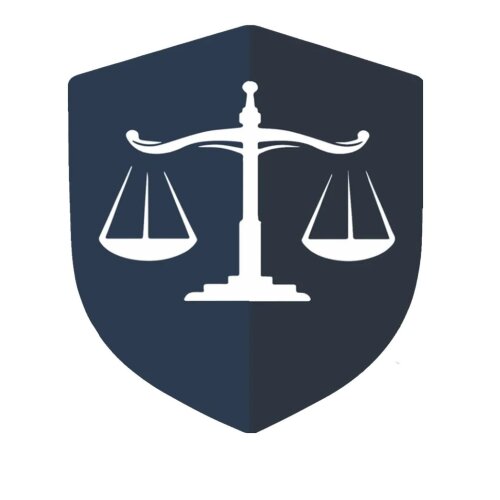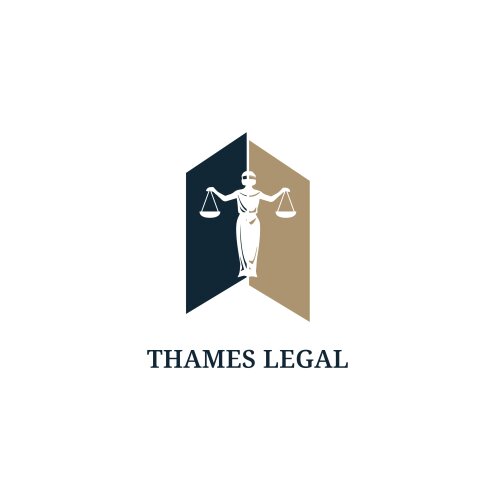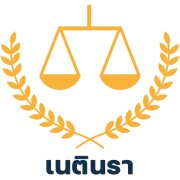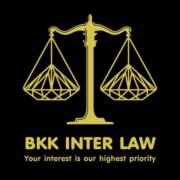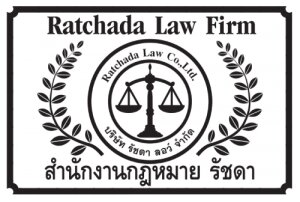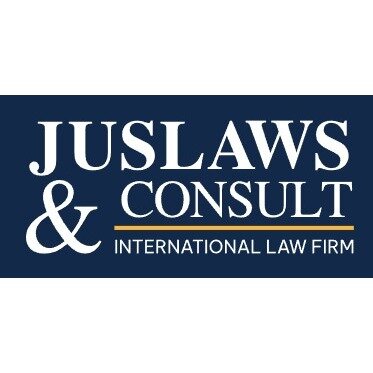Best Bankruptcy & Debt Lawyers in Thailand
Share your needs with us, get contacted by law firms.
Free. Takes 2 min.
Or refine your search by selecting a city:
List of the best lawyers in Thailand
Legal guides written by Smart Legal Solutions:
- Main Legal Measures to Protect Foreign Investment in Thailand
- The importance of the geographical indications for the Thai economy
Legal guides written by GPS Legal:
- Thailand’s SMART Visa program: What you should know
- Estate planning goes beyond wills
- Buying a condo in Thailand as a foreigner
Thailand Bankruptcy & Debt Legal Questions answered by Lawyers
Browse our 1 legal question about Bankruptcy & Debt in Thailand and read the lawyer answers, or ask your own questions for free.
- Money fraud and deceive
- About a year now I am providing financial support to a person I know, because she was facing financial difficulties with her family. The deal was that she was going to give the money back with no interest, as long as she managed to sell some land that she owns,... Read more →
-
Lawyer answer by Ascendance International Consulting (A-I-C)
Thank you for reaching out. Situations involving informal loans to acquaintances are unfortunately common, but there are effective legal steps available in Thailand to pursue recovery—especially where the amount involved is substantial.Based on your description, your ability to recover the...
Read full answer
Thailand Bankruptcy & Debt Legal Articles
Browse our 1 legal article about Bankruptcy & Debt in Thailand written by expert lawyers.
- How to File for Bankruptcy in Thailand
- The economic landscape of Thailand has seen its share of ups and downs over the years, with the 1997 Asian financial crisis leaving an indelible mark on the country's financial system. This crisis forced Thailand to reevaluate its financial institutions and legal frameworks. As a response to the corporate defaults... Read more →
About Bankruptcy & Debt Law in Thailand
Thailand's bankruptcy and debt laws provide a legal framework for individuals and businesses unable to meet their financial obligations. Governed primarily by the Bankruptcy Act, these laws aim to offer protection to both debtors and creditors, allowing for an orderly settlement of debts. The process can involve debt restructuring, repayment plans, or liquidation of assets under the supervision of the relevant authorities. Understanding these laws is crucial for managing financial distress and seeking appropriate solutions.
Why You May Need a Lawyer
Navigating bankruptcy and debt issues can be complex, and having legal expertise can be invaluable in various situations. You may need a lawyer if you are facing creditor harassment, at risk of losing your assets, considering filing for bankruptcy, or need to dispute claims against you. Additionally, business owners may require assistance in debt restructuring or corporate bankruptcy proceedings. A lawyer can provide guidance on legal rights, represent you in court, and help negotiate with creditors.
Local Laws Overview
Key aspects of Thailand's bankruptcy and debt laws involve the distinction between voluntary and involuntary bankruptcy. For personal bankruptcy, a debtor must owe at least THB 1 million to qualify, whereas business bankruptcy requires a threshold of THB 2 million. The Rehabilitation of Businesses Act facilitates the restructuring of corporate debts, similar to Chapter 11 in the United States. Court involvement is required in most processes, and the Department of Legal Execution plays a significant role in enforcing judgments and managing bankruptcy estates.
Frequently Asked Questions
What is the minimum debt amount to declare bankruptcy in Thailand?
The minimum debt amount for personal bankruptcy is THB 1 million, while for corporate bankruptcy, it is THB 2 million.
What happens to my assets if I go bankrupt in Thailand?
Your assets may be liquidated to pay off your creditors. However, certain exemptions and protections can apply based on your specific circumstances and the court's decision.
Can a foreigner file for bankruptcy in Thailand?
Yes, foreigners can file for bankruptcy in Thailand provided they have debts within the country and meet the legal requirements.
How does business debt restructuring work under Thai law?
Businesses can file for restructuring under the Rehabilitation of Businesses Act, which allows for reorganization and debt restructuring while protecting the company from creditors during the process.
Can I be jailed for my debts in Thailand?
No, imprisonment for debt is not practiced in Thailand. Bankruptcy proceedings are civil matters and do not involve criminal penalties.
How long does a bankruptcy case typically take in Thailand?
The duration of a bankruptcy case can vary greatly based on its complexity, but typically personal bankruptcy cases may take several months to years, while corporate cases might take longer.
Is it possible to settle debts outside of court in Thailand?
Yes, debts can often be settled outside of court through negotiation or mediation, especially if both parties agree to the terms.
What role does the Department of Legal Execution play in bankruptcy?
The Department of Legal Execution enforces court orders related to bankruptcy, oversees the liquidation of assets, and ensures compliance with the legal processes.
Are there any debts that cannot be discharged in bankruptcy?
Yes, debts such as certain taxes, fines, and child support obligations are typically not dischargeable in bankruptcy.
How can I prevent falling into bankruptcy?
To prevent bankruptcy, it is advisable to seek financial counseling, create a budget, manage expenses, and negotiate with creditors early to settle debts or adjust repayment terms.
Additional Resources
For additional guidance, consider reaching out to the following organizations:
- The Department of Legal Execution
- The Lawyers Council of Thailand
- Non-profit organizations offering financial counseling services
- Relevant online forums and community support groups
Next Steps
If you require legal assistance with bankruptcy and debt in Thailand, consider these next steps:
- Research and contact a reputable law firm specializing in bankruptcy and debt law.
- Prepare a detailed account of your financial situation, including debts, assets, and any previous legal actions.
- Schedule an initial consultation with a lawyer to discuss your case and explore your legal options.
- Stay informed about your rights and responsibilities to make well-informed decisions throughout the legal process.
Lawzana helps you find the best lawyers and law firms in Thailand through a curated and pre-screened list of qualified legal professionals. Our platform offers rankings and detailed profiles of attorneys and law firms, allowing you to compare based on practice areas, including Bankruptcy & Debt, experience, and client feedback.
Each profile includes a description of the firm's areas of practice, client reviews, team members and partners, year of establishment, spoken languages, office locations, contact information, social media presence, and any published articles or resources. Most firms on our platform speak English and are experienced in both local and international legal matters.
Get a quote from top-rated law firms in Thailand — quickly, securely, and without unnecessary hassle.
Disclaimer:
The information provided on this page is for general informational purposes only and does not constitute legal advice. While we strive to ensure the accuracy and relevance of the content, legal information may change over time, and interpretations of the law can vary. You should always consult with a qualified legal professional for advice specific to your situation.
We disclaim all liability for actions taken or not taken based on the content of this page. If you believe any information is incorrect or outdated, please contact us, and we will review and update it where appropriate.
Browse bankruptcy & debt law firms by service in Thailand
Thailand Attorneys in related practice areas.
Browse bankruptcy & debt law firms by city in Thailand
Refine your search by selecting a city.





